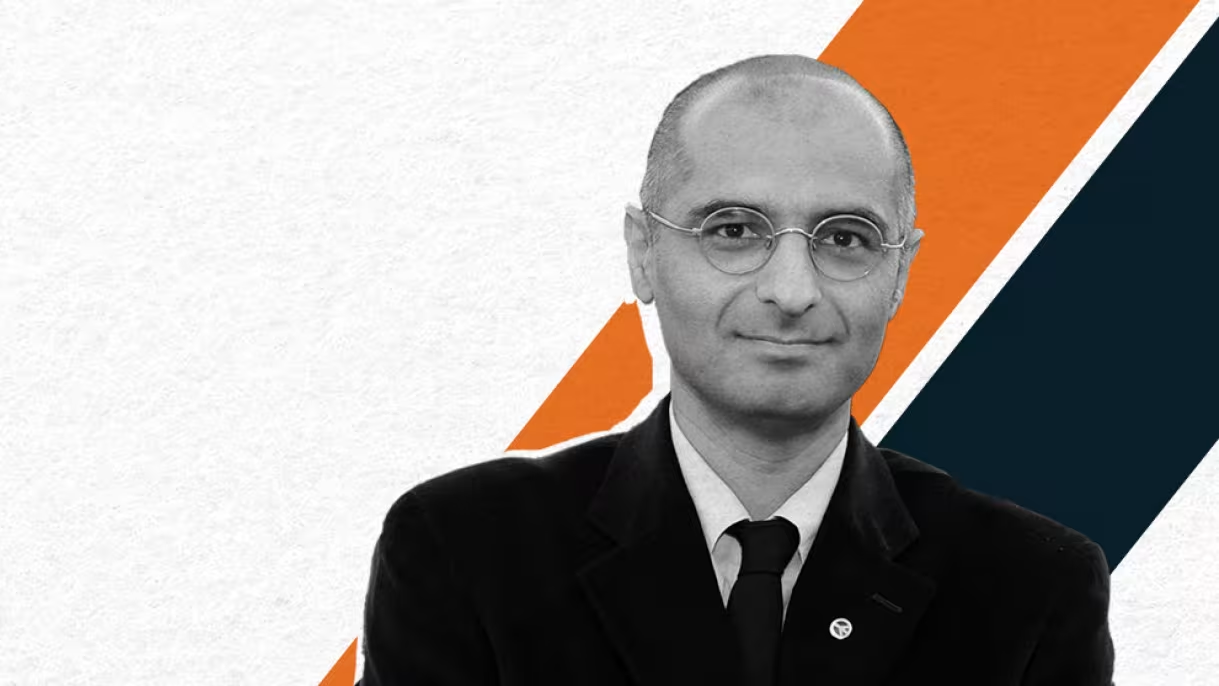

Zia Mian Elected Fellow of the American Physical Society
Zia Mian, a physicist and co-director of the Program on Science and Global Security (SGS), has been elected a fellow of the American Physical Society (APS).
Mian was recognized for “promoting global nuclear risk reduction and disarmament through academic research, public speaking, technical and popular writing, and organizing efforts.”
Mian has been part of SGS, based at the Princeton School of Public and International Affairs since 1997. His research interests include issues of nuclear arms control, nonproliferation and disarmament, and international peace and security.
In 2019, Mian received another prize from the APS: the Leo Szilard Award, which recognizes outstanding accomplishments by physicists in promoting the use of physics for the benefit of society in such areas as the environment, arms control, and science policy.
Frank von Hippel, a founder of the SGS and professor of public and international affairs, emeritus, recruited Mian to Princeton. “It seems turned around that Zia Mian should become a fellow of the APS after receiving its Leo Szilard Award, which is, in my view, the APS’ highest award. But no part of Mian’s career has been linear,” von Hippel said.
Mian played an especially important role in educating the publics and governments of India and Pakistan on the danger of nuclear weapons after the two countries conducted a series of nuclear weapons tests in 1998. As director of the SGS’ Project on Peace and Security in South Asia for more than two decades, he brought together leading physicists from the two countries to do collaborative research and develop new ideas for reducing and ending the nuclear danger in the subcontinent.
“Zia is one of the world’s foremost experts on global nuclear nonproliferation and disarmament issues. During his many years at Princeton, Zia has also been an enduring moral voice on virtually every policy issue related to nuclear weapons and disarmament. We are extremely fortunate to have Zia on our team,” said Alexander Glaser, co-director of SGS and associate professor of mechanical and aerospace engineering and international affairs.
In recent years, Mian’s work has focused on advancing the technical basis for international policies to end production and use of plutonium and highly enriched uranium, the key ingredients in nuclear weapons. Mian is co-chair of the International Panel on Fissile Materials, a 17-country independent group of experts working to strengthen policy initiatives in this area.
Mian also has been active in leading the effort to provide technical advice and support for the Treaty on the Prohibition of Nuclear Weapons agreed upon in 2017 by 122 countries at the United Nations. The treaty, which entered into force in January 2021, is the first to ban nuclear weapons, their use, and the threat of their use. Mian convenes an informal international ban treaty study group, bringing together officials, scholars, experts, and activists to support effective implementation of the new treaty.
In 2019, Mian was one of the co-founders of the Physicists Coalition for Nuclear Threat Reduction, a new effort to educate and engage the U.S. physics community on the need to confront the continuing danger posed by nuclear weapons and build a national network of citizen-physicists as a voice for nuclear threat reduction. Based at SGS and sponsored by APS, the Coalition now has more than 500 physicist members nationwide.
A prolific writer, Mian serves as the co-editor of Science & Global Security, the international peer-reviewed journal of arms control, nonproliferation, and disarmament science. He is also co-author of “Unmaking the Bomb,” published by MIT Press; editor of several books; and has made two documentary films on peace and security in South Asia.
Founded in 1899, the mission of APS is to advance and spread the knowledge of physics for the benefit of humanity, promote physics, and serve the broader physics community. It represents more than 55,000 physicists in academia, national laboratories, and industry.

